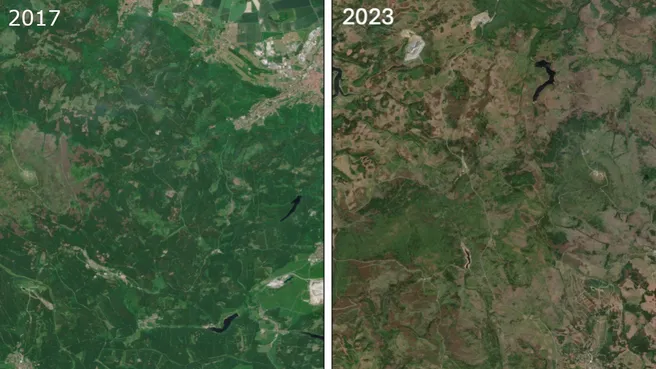The project focuses on the investigation of climate change-related disturbances such as drought, bark beetle infestation, storms and fire. The effects of these disturbances on forests and forest biodiversity are studied in a holistic manner, including leading researchers but also forest owners, stakeholders and the public. DIVERSA (Forest disturbances under climate change in Lower Saxony: Understanding drivers and impacts to enhance forest adaptability) is thus building an interdisciplinary research network that aims to improve the adaptability of forests and society to climate change.
Mapping climatic extremes from satellite data
As part of DIVERSA, TUM is responsible for processing and analyzing earth observation data. “In particular, we will map changes in the forest canopy caused by climatic extremes such as storms and droughts from satellite data,” explains Prof. Cornelius Senf. In his professorship for Earth Observation for Ecosystem Management at TUM’s School of Life Sciences in Freising, he conducts research at the interface of Earth observation and ecology. He explains: “The information obtained from Earth observation contributes to a better understanding of how climate change affects biodiversity in forests.”
How can forests be developed in a climate-friendly way?
What potential do forests have to adapt naturally to climate change-related disturbances? How can forest owners and society contribute to improving the adaptability of forests in a timely manner? The DIVERSA future laboratory is investigating these questions under the leadership of the Northwest German Forest Research Institute.
The project is funded with five million euros for a period of six years from the zukunft.niedersachsen program of the Lower Saxony Ministry of Science and Culture and the Volkswagen Foundation.
